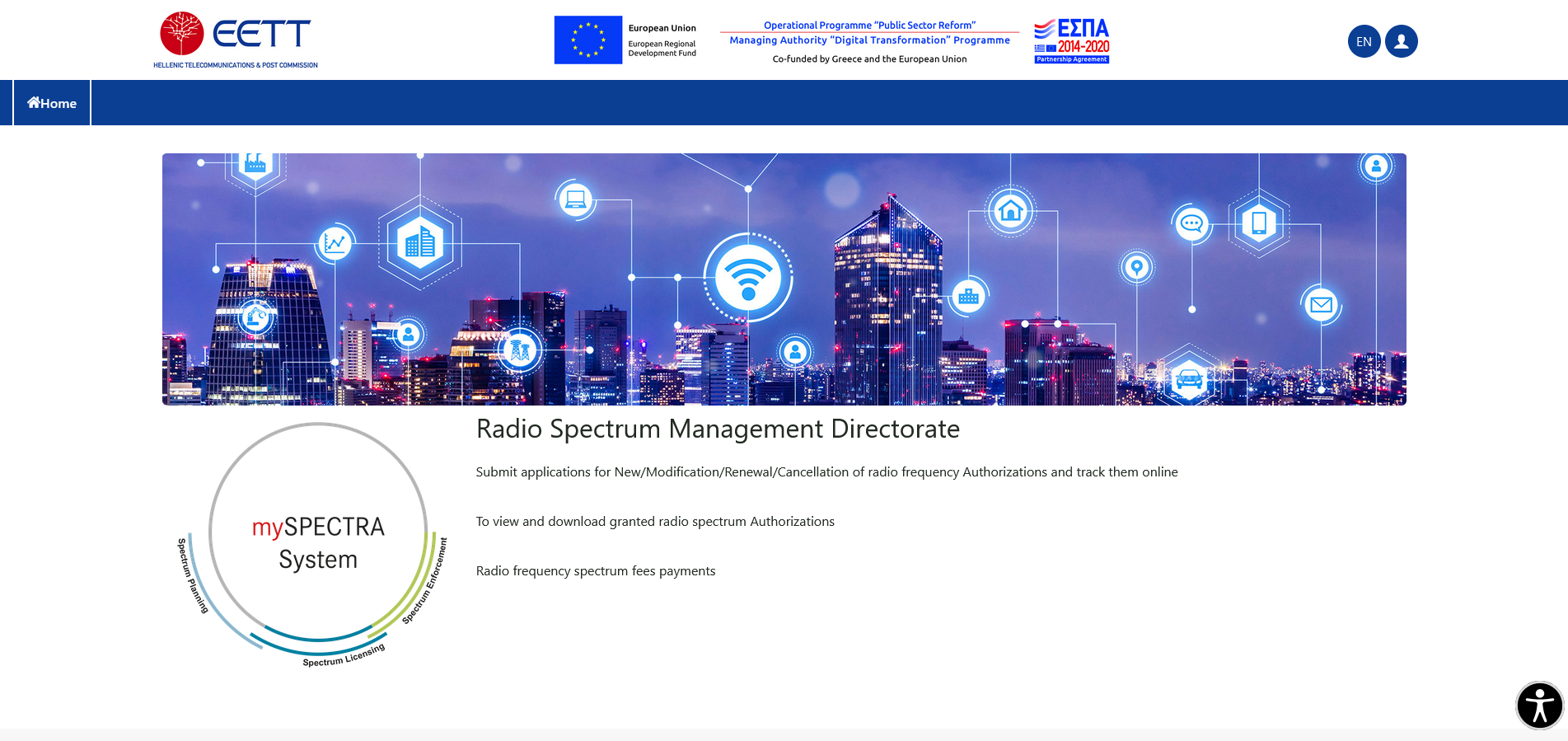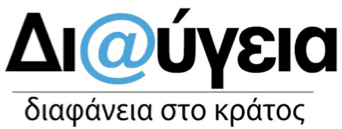SSMS constitutes an integrated, albeit scalable and modular, system equipped with antennas, receivers as well as additional equipment in order to be able to monitor frequencies and services of interest to satellite communications; it will be situated in a suitable dedicated location. Moreover, its functionality, availability and communication with EETT’s central facilities and its interoperability with relevant spectrum monitoring and management systems, is ensured.
Fully deployed and operational, SSMS will assist EETT to exercise effectively its statutory responsibilities regarding the monitoring of spectrum utilized in satellite communications as well as the geo-location of sources of interference affecting satellite networks. In particular, SSMS:
- Ensures the (unobstructed) provision of services and applications provided via satellite systems to/for domestic private and public entities, including providers of electronic communications networks and services; SSMS facilitates an effective and timely response when interference problems arise
- Allows the systematic monitoring of satellite frequencies as well as of orbit characteristics in order to identify potential deviations from the envisaged technical specifications contained in the respective registry. In parallel, it offers the possibility to record and monitor satellite broadcasting when the Greek territory is in the footprint (coverage area) of the satellite’s beam. Therefore, the operation of SSMS will cover existing monitoring needs for current systems (HELLAS SAT III, IV, etc.) as well as for any other new constellation of satellites that may be put into orbit and are of interest to Greece
- Allows, the utilization of specific geo-location techniques, which usually rely on receiving the interfering signal (even when the source of interference resides outside the Greek territory), (mainly) via two distinct satellites as well as of a corresponding signal from a reference station, in order to resolve interference problems. Of primary interest is to monitor orbit characteristics and frequency bands associated with geostationary (GSO) satellites, as well as the technical characteristics of emissions, in order to resolve discrepancies/problems and/or to conduct regular, efficient satellite monitoring
- Allows inspection of compliance of monitored operational and other technical characteristics with respect to those planned and stipulated in the contractual obligations especially regarding satellite infrastructure of interest to the Greek State (HELLAS SAT III, IV etc.); thus, SSMS will facilitate full utilization of satellite infrastructure of interest to the Greek State
- Expands the collaboration venues with a multitude of international entities dealing with issues pertinent to satellite monitoring, as well as with international regulatory and standardization organizations and manufacturers of relevant technologies, services, and applications. Moreover, it facilitates the (pro-) active engagement/contribution of Greece in European and International Institutions (ESA, ITU, CEPT etc.); evidently, the acquired expertise will serve the public interest
- Allows the identification and monitoring of satellite broadcasts whose geographical area of coverage includes the Greek territory; this functionality is of importance for national reasons
- Upgrades the operational capabilities of EETT relevant to domestic economic sectors that are particularly promising for fostering growth in the Greek economy. The deployment of SSMS in Greece, due to its geographical location, will assist international efforts regarding the effective management of satellite spectrum and the resolution of interference issues, increasing the visibility of Greece and elevating its position in the list of countries actively engaged in the broader satellite sector
- Assists space policy-making as well as the implementation of adopted strategic planning on pertinent issues in Greece, contributing, where necessary, to embarked governmental efforts
- Provides a state-of-the-art infrastructure that supports (mutually beneficial) cooperation between EETT and institutions/entities involved with scientific and/or applied research, as well as with the ecosystem of Greek companies and academia that are either engaged or interested to launch commercial or research activities in the broader satellite sector
EETT’s central goal during the design and implementation of SSMS is to address the satellite spectrum monitoring needs for Greece and, in parallel, to ensure that the deployed system is scalable and upgradable (both in terms of infrastructure and functionality/capabilities), in order to readily meet emerging or anticipated developments that are technological or commercial in nature.







